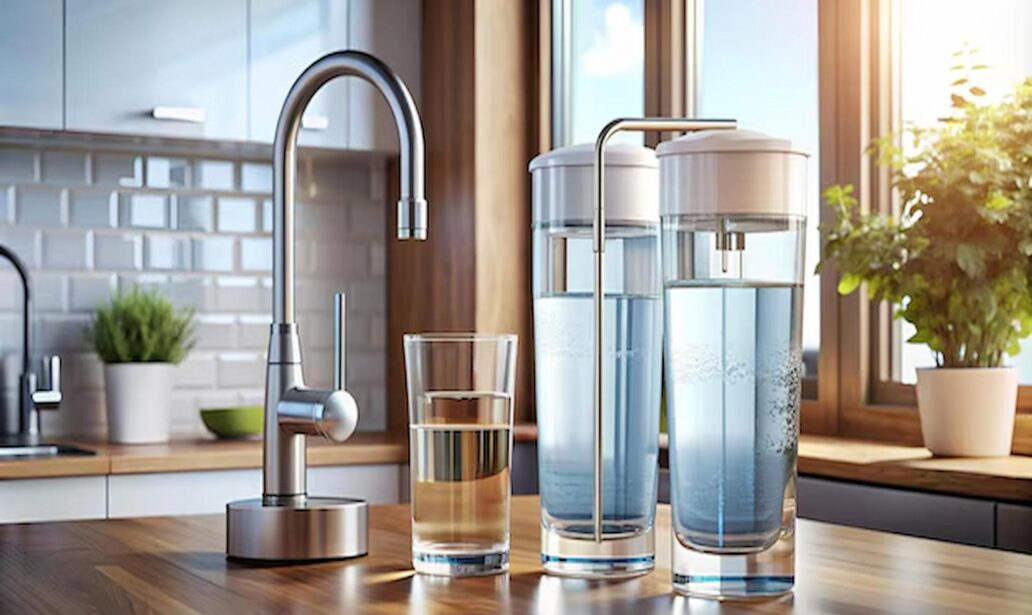Clean water is essential for a healthy life. Here’s how to choose the right water filter to ensure your home’s water supply is safe and refreshing.
Access to clean and safe drinking water is a basic need, yet many households face challenges with water quality. Water quality can vary significantly from contaminants like chlorine and heavy metals to impurities that affect taste and odor. Choosing the right water filter for your home ensures a healthier lifestyle and peace of mind. This beginner’s guide simplifies selecting a water filtration system tailored to your needs.
1. The Importance of Water Filtration
Clean water is vital for maintaining overall health. Contaminants in unfiltered water can lead to serious health issues, including gastrointestinal problems and chronic diseases. While municipal water treatment plants provide essential purification, their processes may not remove all harmful substances.
- Health Benefits: Water filters remove impurities like lead, pesticides, and harmful microorganisms, ensuring safe drinking water.
- Improved Taste: Many filtration systems eliminate chlorine and other chemicals that make water taste unpleasant.
- Environmental Impact: Opting for a home filtration system reduces reliance on bottled water, contributing to plastic waste.
Investing in a water filter is not just a luxury but a necessity for every household.
2. Types of Water Filters: Which One Suits You?
The market offers various water filters, each designed to address specific needs. Understanding the different types helps narrow down your options.
- Pitcher Filters: Pitcher Filters are ideal for small households. They are affordable, easy to use, and require frequent filter replacement.
- Faucet-Mounted Filters: Simple to install, these are effective for removing chlorine and improving taste.
- Under-sink filters are more robust and can handle a higher volume of water, removing a wider range of contaminants.
- Reverse Osmosis Systems: These are best for comprehensive filtration. They remove almost all impurities, including heavy metals and microorganisms.
- Whole House Systems: These are perfect for larger households. They filter whole-house systems water for all uses, including drinking, bathing, and cooking.
Each type has advantages and limitations, so assess your household’s water consumption and quality needs before deciding.
3. Factors to Consider When Choosing a Water Filter
Selecting the right water filter involves considering several factors to ensure it meets your requirements.
- Water Quality: Test your home’s water supply to identify contaminants.
- Budget: Filters vary in cost, from affordable pitchers to high-end whole-house systems.
- Ease of Maintenance: Consider systems with easy-to-replace filters and minimal upkeep.
- Flow Rate: Ensure the filter can handle your household’s water usage.
- Certification: Look for filters certified by organizations like NSF to ensure quality and safety.
By evaluating these factors, you can make an informed choice that balances performance and cost.
4. How to Maintain Your Water Filtration System
Proper maintenance is crucial for the efficiency and longevity of your home filtration system. Neglecting this can lead to reduced performance and higher costs in the long run.
- Regular Filter Replacement: Follow the manufacturer’s guidelines for replacing filters. Delayed replacement can reduce filtration efficiency and allow contaminants to pass through.
- Cleaning: Some systems, like reverse osmosis, require periodic cleaning to prevent buildup.
- Monitor Performance: Monitor water flow and taste; any changes could indicate a need for maintenance.
- Professional Servicing: Schedule regular professional check-ups for complex systems to ensure optimal performance.
Consistent care ensures your filtration system remains effective and cost-efficient.
5. Common Myths About Water Filters
There are many misconceptions about water filtration systems that can confuse buyers. Let’s address some common myths:
- Myth 1: All tap water is safe to drink.
- Reality: While treated water meets basic safety standards, it may still contain harmful contaminants.
- Myth 2: All filters work the same way.
- Reality: Different filters target different impurities. A one-size-fits-all approach doesn’t work.
- Myth 3: Water filters are expensive to maintain.
- Reality: Maintenance costs vary, and many systems are affordable over time.
Understanding the facts helps you make confident decisions about your home filtration system.
6. Top Benefits of Installing a Home Filtration System
Beyond providing clean drinking water, a home filtration system offers numerous advantages:
- Health Protection: Filters eliminate harmful substances like bacteria, viruses, and heavy metals.
- Cost Savings: Reducing reliance on bottled water saves money in the long run.
- Convenience: Having filtered water readily available simplifies daily tasks.
- Eco-Friendly: Reduces plastic waste and carbon footprint from bottled water production.
- Better Skin and Hair Health: Filtered water removes chlorine and other chemicals that can irritate the skin and scalp.
By investing in a reliable water filter, you’ll invest in your family’s health and contribute to a sustainable future.
Conclusion
Choosing the right water filter for your home is an investment in health, safety, and sustainability. You can make an informed decision by understanding the types of filters available and assessing your household’s specific needs. Whether you opt for a simple pitcher filter or a comprehensive whole-house system, the benefits are undeniable. Clean, safe, and great-tasting water is within your reach.
First, test your water quality and explore filtration options today. Remember, a well-chosen home filtration system ensures your family’s peace of mind and long-term well-being.

